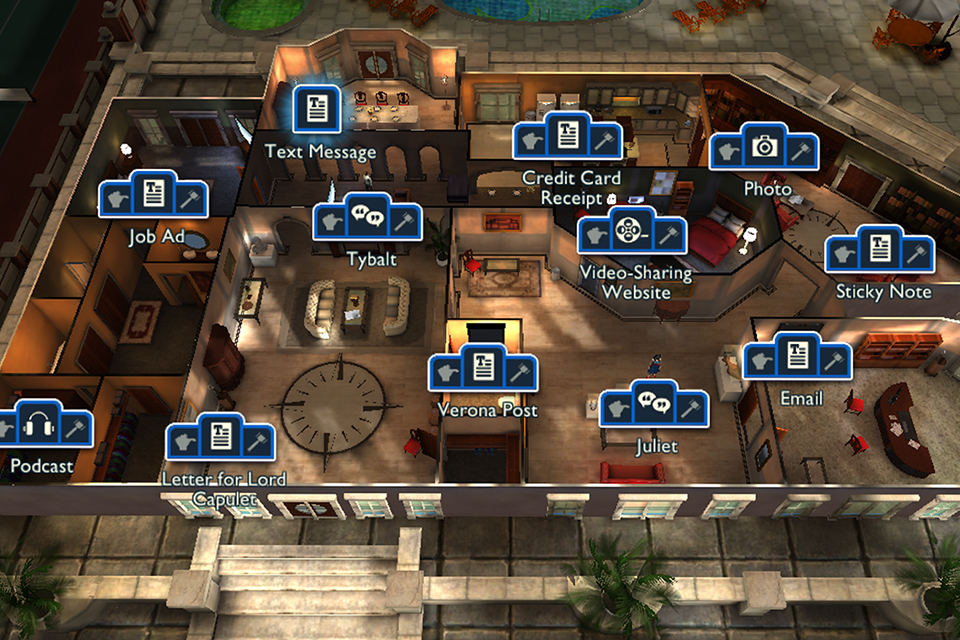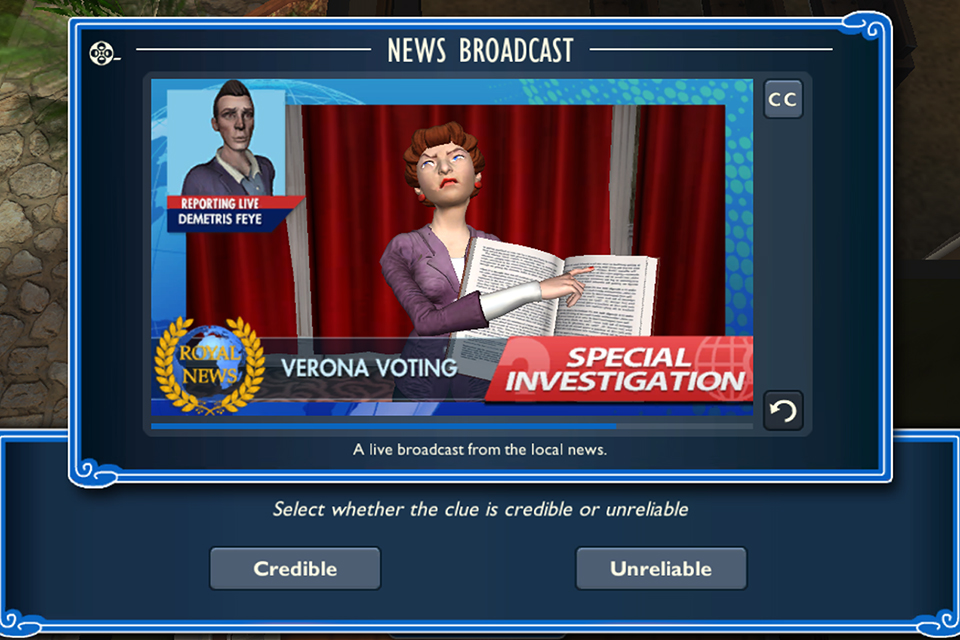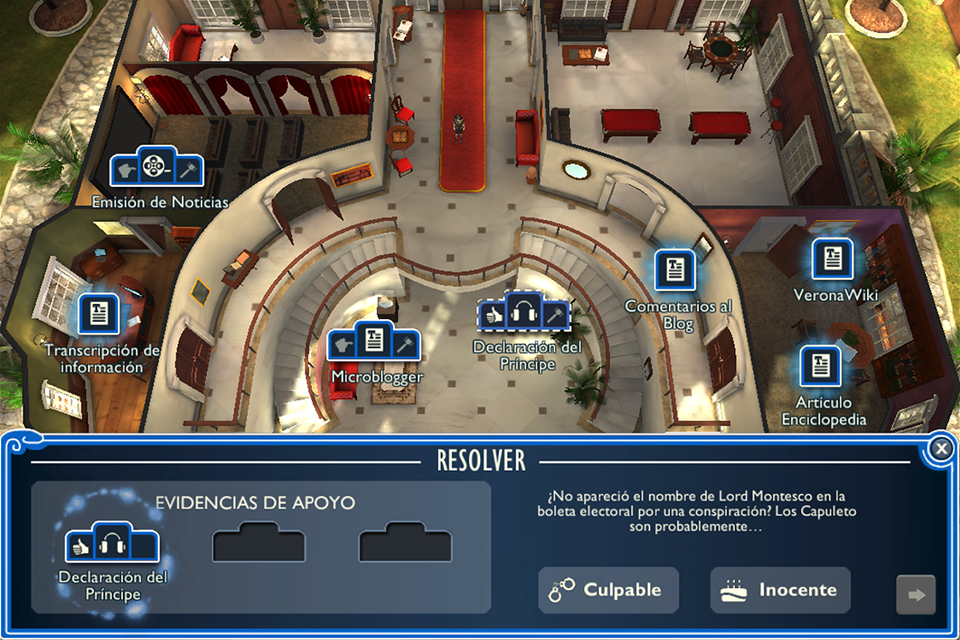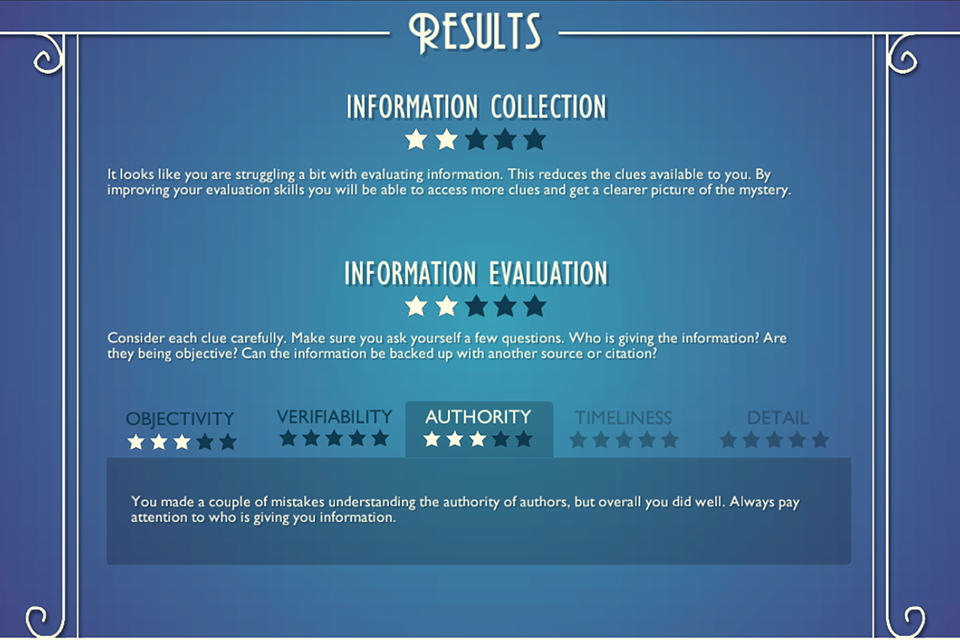Learning Objectives
Students can assess information based on five criteria: verifiability, objectivity, timeliness, detail, and authority.
Students can use the above criteria to determine if information is reliable or not.
About The Detective: Verona
As the grandchild of the famous private investigator Giovanni Durano, students solve mysteries by collecting, evaluating, and using information.
At the start of each level, the student will be presented with a hypothesis, which is the start of the mystery they must solve. The student uses point-and-click navi move around the level, using point-and-click navigation and collecting “clues.” Each clue includes some media (text, image, audio, or video) that they must evaluate for credibility. Each collected clue will reveal additional clues on the map.
Once students have collected and correctly evaluated enough clues (defined per level), they can solve the mystery. This is done by selecting a conclusion and supporting that conclusion with a certain number of clues. If they have selected the correct outcome and supported that outcome with appropriate evidence, they win the level.
The credibility of clues is divided into five categories: Authority of the Author, Verifiability, Objectivity, Timeliness, and Level of Detail. The Detective: Verona contains three scenarios, or levels, which are scaffolded in difficulty. The first scenario deals only with Authority, and the other categories are added in subsequent levels.
Explicit, just-in-time instruction is used to explain the main concepts of information literacy before the player encounters those concepts in the game. After each clue is evaluated (whether correctly or incorrectly), the game provides clue-specific feedback to help the student understand their decision and the reliability of the clue. At the end of each scenario, students are also presented with a summation of their performance on that scenario along with feedback to improve their performance.
Use The Detective: Verona into your classroom as part of our free lesson: https://learn.k20center.ou.edu/lesson/484.
Media





Game Resources
In addition to full implementation support, the K20 Center provides the following documents to help instructors effectively integrate The Detective: Verona into their classrooms:
Download AllK20 Game Based Learning
To use K20 Games in your classroom free of charge, please click the button below and create an account on the K20 Game Portal.
Get GamesAwards and Publications
Wilson, S., Engler, C., Black, J., Yager-Elorriaga, D., Thompson, W., McConnell, A., Elizondo, J., Ralston, R. & Terry, R. (2017). Game-based learning and information literacy: A randomized controlled trial to determine the efficacy of two information literacy learning experiences. International Journal of Game-Based Learning, 7(4).
Game Support
If you have an issue with any GBL product, click the button below to visit our support page. From there, you can view frequently ask questions, access useful guides, or contact support.
Request Support

